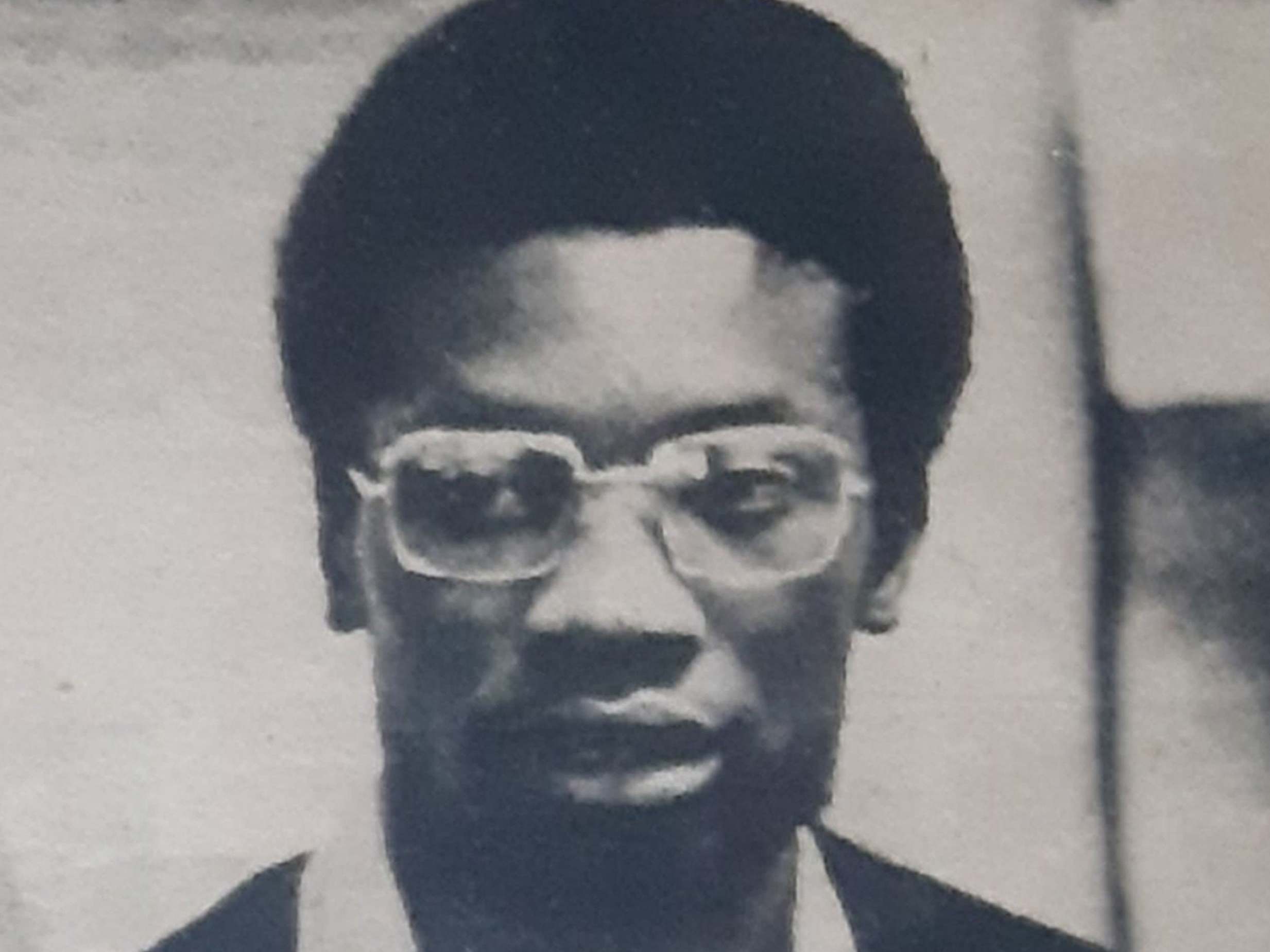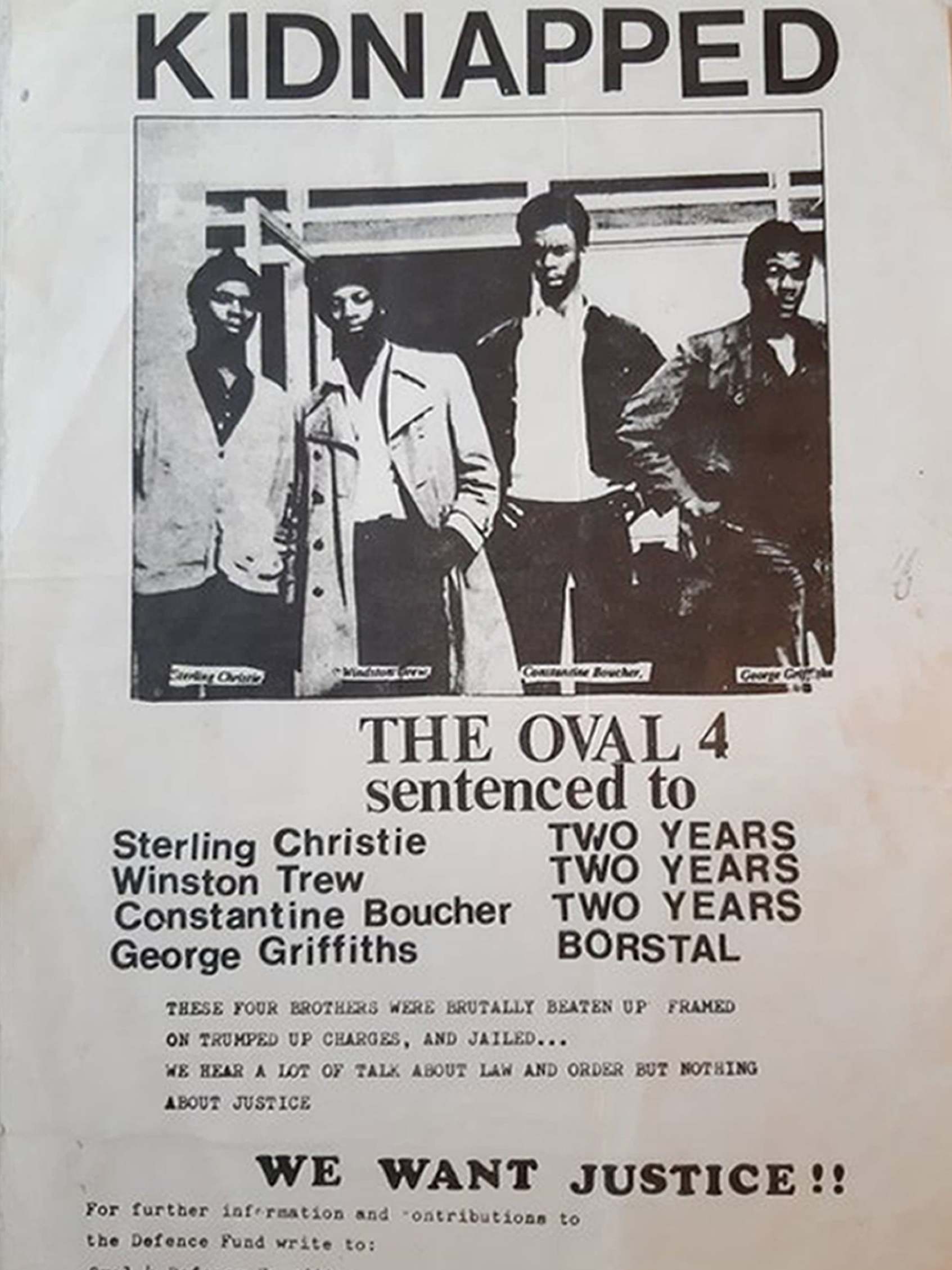Oval Four: Black man framed by corrupt police officer at London Tube station cleared 48 years later
Call for 'wholesale review' of all officer's cases, as lawyer warns 'there may be many other victims of his corruption'

Your support helps us to tell the story
From reproductive rights to climate change to Big Tech, The Independent is on the ground when the story is developing. Whether it's investigating the financials of Elon Musk's pro-Trump PAC or producing our latest documentary, 'The A Word', which shines a light on the American women fighting for reproductive rights, we know how important it is to parse out the facts from the messaging.
At such a critical moment in US history, we need reporters on the ground. Your donation allows us to keep sending journalists to speak to both sides of the story.
The Independent is trusted by Americans across the entire political spectrum. And unlike many other quality news outlets, we choose not to lock Americans out of our reporting and analysis with paywalls. We believe quality journalism should be available to everyone, paid for by those who can afford it.
Your support makes all the difference.A black man who was jailed for a crime he did not commit has had his conviction quashed almost 50 years after being arrested by a corrupt police officer.
Omar Boucher is the last member of the Oval Four to be formally cleared of trying to steal handbags, amid calls for a review of other cases led by the same officer.
They were arrested at Oval underground station in London in 1972 by an undercover police unit who accused them of stealing handbags.
The unit was run by Detective Sergeant Derek Ridgewell, who had previously served in the South Rhodesian (now Zimbabwean) police force, and was involved in a number of high-profile and controversial cases in the early 1970s.
Three of the men were cleared last year after Ridgewell’s corruption caused a number of convictions to be overturned, but Mr Boucher had been living overseas and could not be traced at the time.
Now 71, he contacted the Criminal Cases Review Commission (CCRC) when he saw news of the case in December.
At a hearing earlier today held partly by telephone because of the coronavirus outbreak, three Court of Appeal judges quashed his conviction.
Lord Justice Fulford, sitting with Ms Justice Carr and Mr Justice Goss, said the safety of the conviction was “fundamentally undermined by the apparent lack of integrity of DS Ridgewell and the team he led”.
The judge added: “It is clear that Mr Boucher’s conviction is unsafe. It is highly unfortunate that it has taken nearly 50 years to rectify this injustice.”
He was convicted of attempted theft and assaulting police alongside Winston Trew, Sterling Christie and George Griffiths, who were then aged between 19 and 23.
Mr Christie was also found guilty of theft of a handbag, following a five-week trial at the Old Bailey, and all four were given a two-year sentence that was later reduced to eight months on appeal.
At the hearing that quashed the first three convictions in December, the Lord Chief Justice expressed “regret that it has taken so long for this injustice to be remedied”.
Jenny Wiltshire, a solicitor who represented Mr Boucher, said: “While it is happy news that Mr Boucher’s conviction has now been quashed, the fact that it has taken so long is very concerning.
“The British Transport Police and the Home Office have known about the police officer’s corruption for decades. Yet they have done little to right his wrongs.”
Ridgewell’s usual tactic was to confront young black men at Tube stations and accuse them of theft, then arrest them for assaulting police officers if they resisted.

The corrupt officer would then make up incriminating remarks he claimed they had made.
In the Oval Four case, the men were taken to Kennington police station and signed confessions written for them by Ridgewell.
In these statements, they admitted attempting to pick a man’s pocket, violently resisting arrest and previous theft offences elsewhere on the Tube network that they had not committed.
At their trial, all four pleaded not guilty and told how they had defended themselves after being unexpectedly set upon by plain-clothes officers who did not say they were police.
They said they signed false confessions in fear of further beatings, but were convicted after Ridgewell gave evidence against them in court.
Ridgewell’s tactics led to a string of high-profile and controversial convictions, until eventually a judge threw out a case brought against two young Jesuits studying at Oxford University.
Defendants in three other cases on the London Underground investigated by Ridgewell had been acquitted in the early 1970s – known as the Waterloo Four, the Stockwell Six and the Tottenham Court Road Two.
Amid calls for an inquiry into his cases, Ridgewell was moved into a department investigating mailbag theft.
But he entered a conspiracy to steal mailbags with two other criminals, resulting in thefts valued at over £300,000 – equivalent to almost £1.3m today.
He was eventually caught and jailed for seven years, before dying of a heart attack in prison in 1982 at the age of 37.
“Ridgewell was first denounced as corrupt in 1973, he was imprisoned in 1980,” said Ms Wiltshire, of Hickman and Rose Solicitors.
“The BTP could have re-examined his cases then but they didn’t. They instead left it to his victims to try and work out for themselves exactly how they had been set up, and to gather the evidence they needed to prove their innocence.
“In my view the BTP should now conduct a wholesale review of all this officer’s cases. It seems to me very likely that there may be many other victims of his corruption.”
Additional reporting by PA